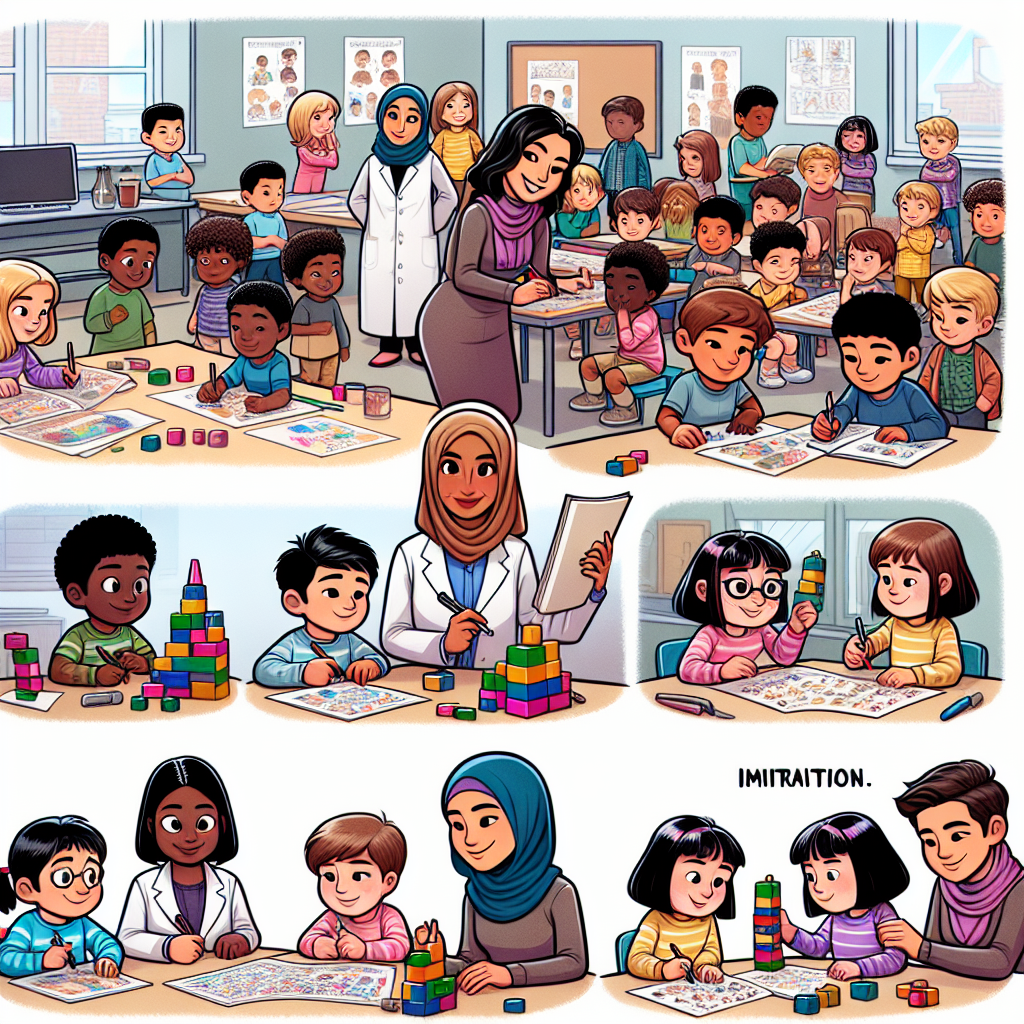
Overimitationy: Understanding Social Learning in Children
Overimitation, a behavior where children copy actions that appear unnecessary or redundant, is an intriguing concept in school psychology. This phenomenon sheds light on the social and cognitive processes driving children’s learning and development. It raises questions about how children interpret and internalize instructional cues from adults and peers, often leading them to imitate actions beyond practical necessity. As educators and psychologists delve into this topic, understanding overimitation offers valuable insights into fostering effective teaching methods and better-supporting children’s educational journeys.
What is Overimitation?
Overimitation involves children replicating behaviors they observe in others, even when such behaviors do not contribute directly to achieving a goal. It is most commonly observed in settings where children are instructed through demonstrations, such as retrieving a reward from a puzzle box using a series of actions (source: ScienceDirect). While the causality of these actions may be unclear, children still mimic them, suggesting a deeper, social function of imitation beyond mere task completion.
Overimitation in Developmental Psychology
Research indicates that overimitation is not just a byproduct of unnecessary action copying but rather serves a social bonding and learning function (source: PubMed). By observing and imitating all actions, children gain insights into social norms, cultural practices, and the intricacies of human behavior. This mechanism helps establish social connections and trust, which are crucial in early childhood development and educational settings.
The Educational Implicacy
In school environments, teachers play a critical role in modeling actions and behaviors for students. Understanding overimitation can help educators design instructional strategies that minimize the reproduction of redundant or non-beneficial actions. Implementing pedagogical approaches that encourage critical thinking and problem solving may reduce overimitation and enhance learning efficiency (source: PLOS ONE).
Influence of Pedagogy on Overimitation
Research shows that the type of educational approach influences children’s tendency to overimitate. For example, children educated within Montessori systems, which emphasize exploratory learning and understanding, tend to exhibit less overimitation compared to those in traditional school settings (source: Concordia University). This suggests the importance of teaching methodologies that focus on comprehension and critical assessment of information.
Social Learning and Cultural Transmission
The pervasive nature of overimitation among different cultures and communities highlights its role in cultural transmission. Studies among diverse groups, including indigenous communities, reveal overimitation as a potential universal trait pivotal in passing cultural knowledge and practices (source: PubMed). Such findings underline the inherent human drive for social learning and adaptability, crucial for cultural continuity.
Addressing Overimitation in Education
For school psychologists and teachers, acknowledging overimitation as a social learning tool can lead to more tailored and effective teaching strategies. Emphasizing direct, meaningful tasks and encouraging critical engagement can promote a healthier balance of imitation and independent reasoning in children’s learning journeys. Such approaches not only mitigate unnecessary mimicking but also cultivate a more adaptive and dynamic learning environment.
Conclusion
overimitation reflects a complex interplay between social, cognitive, and educational factors. In school psychology, it highlights the ways children learn and internalize information, emphasizing the need for instruction that balances imitation with innovation. As educators explore these dynamics further, they contribute to shaping more effective teaching and learning experiences, pivotal for nurturing future generations.



